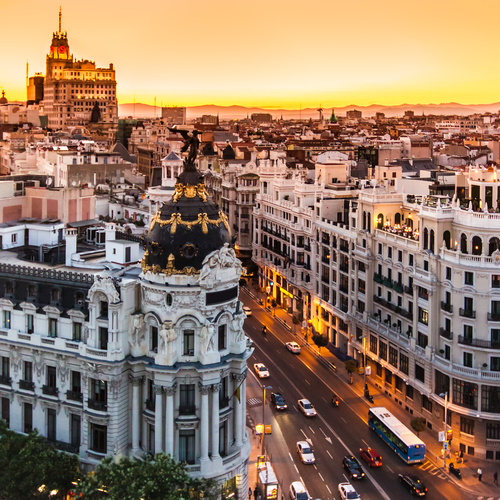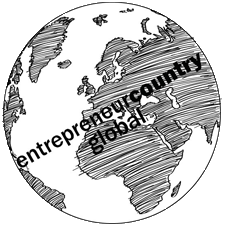Is it Time for an Entrepreneur Political Party?
So yes, it looks like we were all had. Played like pianos, eaten without salt. I´m talking about the Entrepreneur ecosystem in Spain, a sector assiduously courted by both sides before the general election in Spain last November.

In private at select briefings as well in stump speeches and manifestos, the incoming Conservative Partido Popular claimed to be an economically literate party who understood the role disruptive high growth firms played in creating employment and prosperity. The outgoing Socialist Labour party they claimed were a statist centralising tax and spenders who over eight years had been an inhibitors to growth. Within the first 100 days, the new Prime Minister would introduce an Entrepreneurs Act (La Ley de Emprenadores) which would, among other things introduce limited liability, make it easier to register as self employed and maybe even an enterprise zone or two. Prominent and successful entrepreneurs spoke to politicians about enforcing competition, reducing lobbying also getting the state out of business. Maybe this would take some time came the reply, but we can start with the easy stuff. We agree its ridiculous that Rwanda has a one stop 24 hour long business registration process and Spain does not.
Well coming up on a year now and NOTHING has been done. Actually that´s not entirely true, the situation has been made worse. The self employed will now be taxed at 21% (from 15%) and VAT increased to a top rate of 21%. When questioned, the new date for La Ley de Emprenadores is 2014 with no reason for the delay apart from “priorities”. These priorities include the infamous “Ley Sinde” concerning intellectual property for the rights management lobby, the reintroduction of tax deductions for home buyers for the construction lobby as well as well as capital injections in the billions of Euros for bankrupt banks. Some small light in the tunnel was Spain Startup Co-Investment Fund similar to the Yozma fund in Israel but €40m is very little when you consider that Spanish football clubs in the top two divisions alone owe €720m to the state in unpaid taxes.
As an investor in a number of companies based in Spain, I have some skin in this game. While I didn’t expect everything that was promised, I did expect that the obvious changes would be made. I’m now at the point where I no longer try to stop young graduates who tell me they plan to emigrate. Unless you have a specific reason to be here such as a family business or young children then why not try a growing country like like Mexico, Brazil, India or Korea or even take the time to improve your English by going to Australia, USA, Canada or the UK? Great weather, food and lifestyle only go so far when its clear that life in Spain in the immediate future will get worse before its gets better
Entrepreneurs Party
A good maxim in life is never to confuse malice with incompetence and this remains the line offered by the newspapers supportive to the government. Rabbit caught in the headlights, they say. Its not that they don’t understand what needs to be done to unleash the entrepreneurs (but refuse to do it) more that they are carried along by the crises du jour and the need for quick wins to fend off ambitious up and comers. Many ministers are fighting for their own jobs and do not have the political capital to do the obvious but none the less dramatic changes. So if the govt will not lead, follow or get out of the way what are Entrepreneurs to do?
One intriguing idea is The Entrepreneurship Party. I had no idea if this existed or not but turn out it does. Based in Santa Monica, California, the manifest is online at http://www.entrepreneurshipparty.com. Also is the Party of Industrialists and Entrepreneurs of Ukraine, which would seem to me as a contradiction, but at least the language has entered the debate. A more realistic scenario is that entrepreneurs would get involved in politics by joining a political party, A clear distinction needs to be made here between businesspeople (I´m thinking here of Meg Whitman now of HP or Carly Fiorina, also previously of HP) and a more start-up entrepreneur such as Michael Bloomberg founder of Bloomberg. As both Whitman and Fiorina failed to be elected as California Governor and the US Senate respectively, its unfair to judge them but based on their campaigns the skills that made them millions as CEOs did not transfer seemlessly to politics. In contrast Bloomberg was not just elected, but re-elected as Major of New York. It helps not only that New Yorkers have a can do attitude but also that as a billionaire, campaign funds are always available. He turned up at a TechCrunch Disrupt conference to unveil NYC's new Entrepreneurial Fund and has champiossned open data initiatives. Whether he is responsible for or just representative of, New York has advanced as a start-up hub while he has been in office.
CEO Fallacy
This debate touched on the “CEO Fallacy” the notion that CEOs are just so wonderful that there is nothing they cannot do, including running a country. In an article in the FT last April, Simon Kuper gave an excellent round up of why this thinking is something we should be very careful with: “The analogy fails for many reasons, but above all, running an economy – let alone a country – is of a different order of complexity to running a firm. A CEO typically only has one target: to make a profit. A president has many targets.” He spoke to a researcher in complexity who added: “Companies try to get the best deal, the best bang for the buck, but that’s not really what being a president is about. He’s the strategic force. Those efficiency skills would be great to have in the middle management of the federal bureaucracy”. In his eyes, Mitt Romney from Governor to President is better than Mitt Romney from Businessman to President.
While in the US, the rule of “make money first then go into politics” just about remains, elsewhere the trend is more to make money by going into politics or worse keep money by sending your family into politics. An encouraging sign was reported last month by The Economist who noted how “Political outsiders are challenging Asia’s traditional elites”. From South Korea to Japan to India to Indonesia to Pakistan to Malaysia, a new species of “non-politician” are transforming politics. As with the Arab Spring, their tools are the engagement with the social media generation by which its possible to compete without a big party organisation. Unfortunately the article notes that while an anti corruption message make a great campaign tool, grubby compromises become necessary the nearer a candidate gets to power.
Which is why the best contribution an entrepreneur can make is to stay out of politics and improve lives by through specific initiatives rather than through the existing bureaucracy. I´m thinking here of the work that Michell Zappa is doing in Brazil in areas such as traffic, healthcare, banking and housing. This plays to an entrepreneurs strengths in achieving outcomes as opposed to a politician´s objective which is often just to survive. Frustrating as it may be to see yet another government report (the latest being the Restart Italy) which identifies the problems and recommends the solutions but which merely gathers dust on the bookshelves of some economic ministry.
Beyond that, a further opportunity may lie if, as predicted by many political scientists, the two party system that applies in most countries comes to an end. These third parties, certainly initially, will likely be headed by a charismatic figure. As entrepreneurs tend to be disproportionally interested in social issues and not afraid of a challenge, we may well see a new party which champions entrepreneurship even if they do not formally call themselves by that name. So there is grounds for hope then that the systems can heal itself, that a higher priority will be assigned. Even if the delay will continue to cause frustration, this is probably for the best. As anyone who has been through one will testify, reform is usually better than revolution.
- Tags: entrepreneurs, joe haslam, madrid, politics, spain
